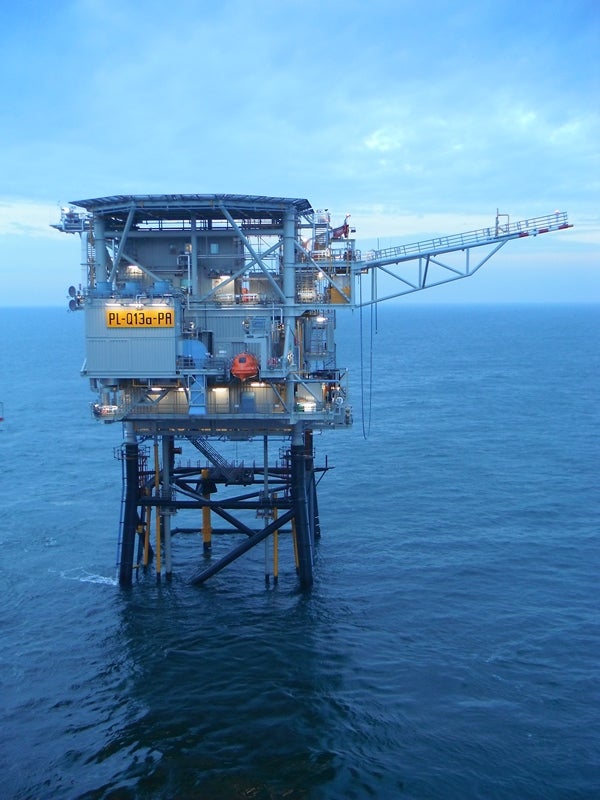
Neptune Energy, a UK-based independent E&P company, has been formally selected to participate in a pioneering pilot project to create the first offshore hydrogen plant in the Dutch sector of the North Sea.
NexStep, the Dutch Association for Decommissioning and Re-Use, and TNO, the Netherlands Organisation for applied scientific research in close collaboration with the industry have commissioned the pilot.
As part of the pilot, a megawatt electrolyser is planned to be placed within a sea container and installed on Neptune’s Q13a platform, located near the Dutch coast, 13km from Scheveningen.
Neptune said that the platform is compatible for the innovative project and is the first fully electrified offshore oil platform in the Dutch North Sea, saving approximately 16.5 kilotonnes of CO2 per year.
Hydrogen will be produced by the electrolyser on the Q13a platform
The hydrogen produced by the electrolyser on the Q13a platform is transported through an existing pipeline to a second platform operated by Taqa, where the hydrogen is used for generating electricity to power the platform.
Neptune Energy Netherlands managing director Lex de Groot said: “This pilot demonstrates the valuable role gas has to play in the integration of various energy systems, and underlines our commitment to adopting innovative technologies and supporting a sustainable future for our business.
“The North Sea, where both wind and natural gas are abundantly available, is the perfect testing ground and we are proud that our Q13a platform has been selected. The platform was the first in the Netherlands to be fully electrified, making it an excellent fit for this important pilot.”
The company said that the pilot is expected to start production later in 2020. Once operational, the pilot is expected to provide the participants with the opportunity to develop their experience of producing hydrogen in an offshore environment, and build a testing ground for innovative technologies and integrated systems.






